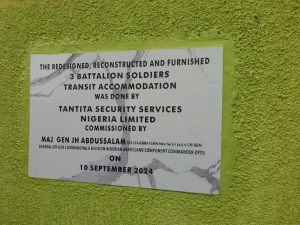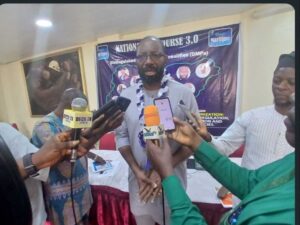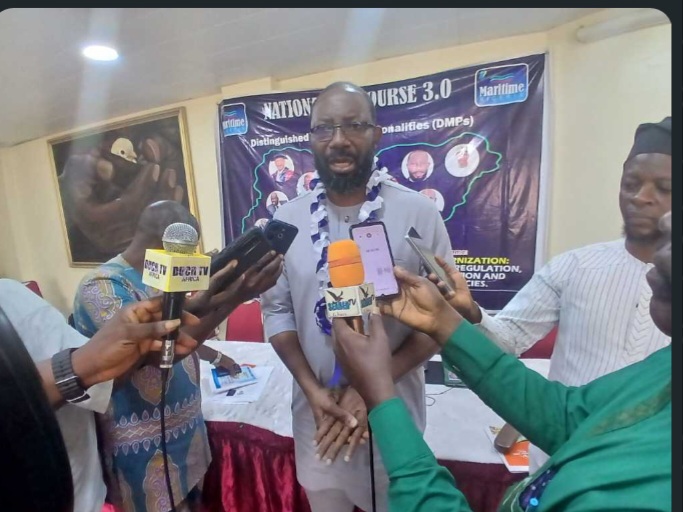By Sandra Chukwunyere
The Niger Delta region of Nigeria has long been plagued by insecurity, with issues such as pipeline vandalism, kidnapping, and oil theft being rampant. However, with the award of a multi-billion Naira pipeline protection contract to Tantita Security Services Nigeria Limited, the narrative is beginning to change.
According to Capt Warredi Enisuoh, Executive Director of Operations & Technical, the company’s contract with the Federal Government has led to a significant reduction in pipeline vandalism and oil theft in the region. This revelation was made on the sidelines of the 2025 National Discourse, hosted by Maritime Nigeria and its affiliates, held at Rockview Hotel in Apapa, Lagos on Thursday.


Tantita’s contract has not only improved security in the region but has also created jobs, with over 200,000 people employed across various sectors. This has had a positive impact on the local economy, taking many families out of poverty. The company’s efforts have also led to an improvement in the overall security situation in the Niger Delta, with people now feeling more secure and having access to more economic opportunities.

Capt Enisuoh recalled that when he moved to the Niger Delta because of this project, it was a very unsafe environment. “But now, you find people jogging in Warri, 2 a.m. if they so wish, and nobody’s disturbing them,” he said. This is a testament to the fact that with the right approach, security challenges in the Niger Delta can be overcome.
The success of Tantita’s contract is a result of the support of both the previous and current administrations, which has helped to reduce oil theft. The company’s efforts, combined with the support of the government and other stakeholders, have created a new era of security in the region.


The Dangote refinery has also had a significant impact on the operations of Tantita Security Services Nigeria Limited. According to Capt Enisuoh, the level of pipeline vandalism has reduced drastically due to a combination of factors, including government security forces’ support, awareness, and improved socioeconomic conditions in the Niger Delta region.
Capt Enisuoh also discussed the challenges of automating Nigeria’s ports, noting that it is a feasible task but requires a high level of superior thinking and reasoning. The country’s ports were built a long time ago, and over time, non-port activities have crowded the areas, making it challenging to implement automation.

To achieve automation, Capt Enisuoh noted that there is a need for a massive resettlement of people and infrastructure, which would require significant commitment and investment. He stated that a greenfield approach, where a new port is built from scratch, would be the best and cheapest way to automate the ports, engaging the private sector in the process.
In addition to port automation, Capt Enisuoh also discussed the challenges of inland water transportation in Nigeria. He noted that when transporting cargo through inland waterways, there are several factors to consider, including the draft and depth of the water, the type of cargo, and the navigation challenges. Feasibility studies are necessary to determine the best route and mode of transportation.
For instance, on the River Niger, there are restrictions on movement after 6 pm, and accurate maps and biometric data are needed to ensure safe navigation. Capt Enisuoh suggested that the Nigerian Inland Waterways Authority (NIWA), Nigerian Ports Authority (NPA), and Shippers Council should collaborate with the private sector to conduct extensive research on how to improve inland water transportation.

Newspoints247 reports that the recent developments in the Niger Delta region are a positive step towards achieving a more secure and economically viable environment. With the continued support of the government and other stakeholders, Nigeria can overcome its security challenges and achieve economic growth and development.
















